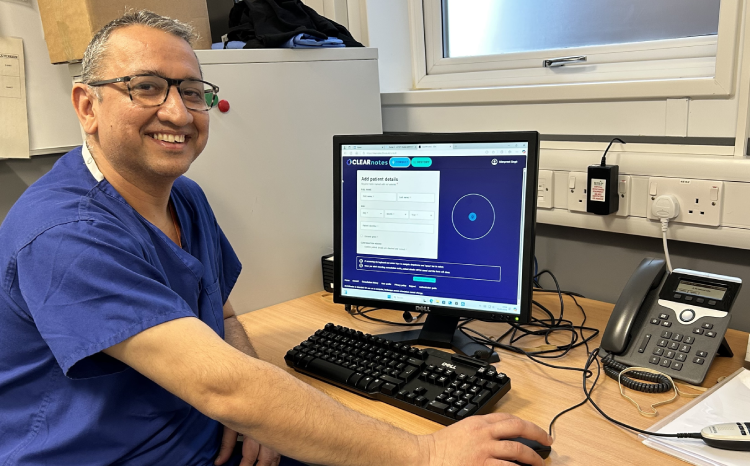Trial finds digital avatars reduce distressing voices in psychosis
- 31 October 2024

- A trial has found that using digital avatars can help people with psychosis reduce the distress and frequency with which they hear voices
- Researchers recruited 345 participants from eight clinical settings in four centres linked to the Universities of Glasgow, Manchester, UCL and King’s
- The research team are now investigating how AVATAR therapy could be rolled out across England in 2025 following a recommendation by a NICE Early Value Assessment
A trial at King’s College London has found that a novel therapy using computer-generated avatars can help people with psychosis reduce the distress and frequency with which they hear voices.
AVATAR therapy is a series of guided therapy sessions during which voice hearers are able to have a conversation with an animated digital representation of their distressing voice.
The research, published in Nature Medicine on 28 October 2024, has been recommended by a NICE Early Value Assessment, with the researchers now seeking to provide it in routine NHS settings to gather further real world evidence of effectiveness over the next three years.
Philippa Garety, professor emerita of clinical psychology at King’s Institute of Psychiatry, Psychology & Neuroscience (IoPPN) and the study’s lead author, said: “To our knowledge, this is the first therapeutic intervention that has a direct and sustained impact upon the frequency with which people hear voices.
“This is an extremely important finding, as it is a clear priority for voice hearers, and hearing fewer voices, less often, or voices going away altogether can have a hugely positive impact on their day-to-day lives.”
Before the therapy, participants work with a therapist to create a computerised visual representation of the voice that they hear (the avatar) and over several sessions, participants learn to stand up to the voice and take control.
Therapy involves a three-way conversation between the voice hearer, therapist and avatar, with the therapist speaking as themselves as well as voicing the avatar using voice conversion software.
Researchers recruited 345 participants from eight clinical settings in four centres linked to the Universities of Glasgow, Manchester, UCL and King’s.
They were randomly assigned to receive either AVATAR brief (six sessions of therapy), AVATAR extended (12 sessions of more personalised therapy), or continue with their usual support.
The researchers conducted follow up interviews at the end of 16 weeks of therapy and three months after therapy concluded to assess the effectiveness of the intervention across several measures, investigating the long-term impact on the related distress, severity and frequency of voices, as well as participant mood and wellbeing.
Findings show that at the 16-week follow-up, participants in both the brief and extended versions of the therapy showed statistically significant improvements in voice-related distress, voice severity, empowerment, mood and wellbeing compared to those who did not receive the therapy.
Dr Thomas Ward, research clinical psychologist at King’s IoPPN, clinical lead for AVATAR therapy and one of the study’s co-senior authors, said: “Our latest findings have demonstrated the effectiveness of AVATAR therapy across multiple sites.
“With these results and the NICE Early Value Assessment recommendation, we hope to see AVATAR therapy available in several NHS Trusts in 2025.”
The research team are now investigating how AVATAR therapy could be rolled out across England, as well as conducting further research with mental health teams across the world.





